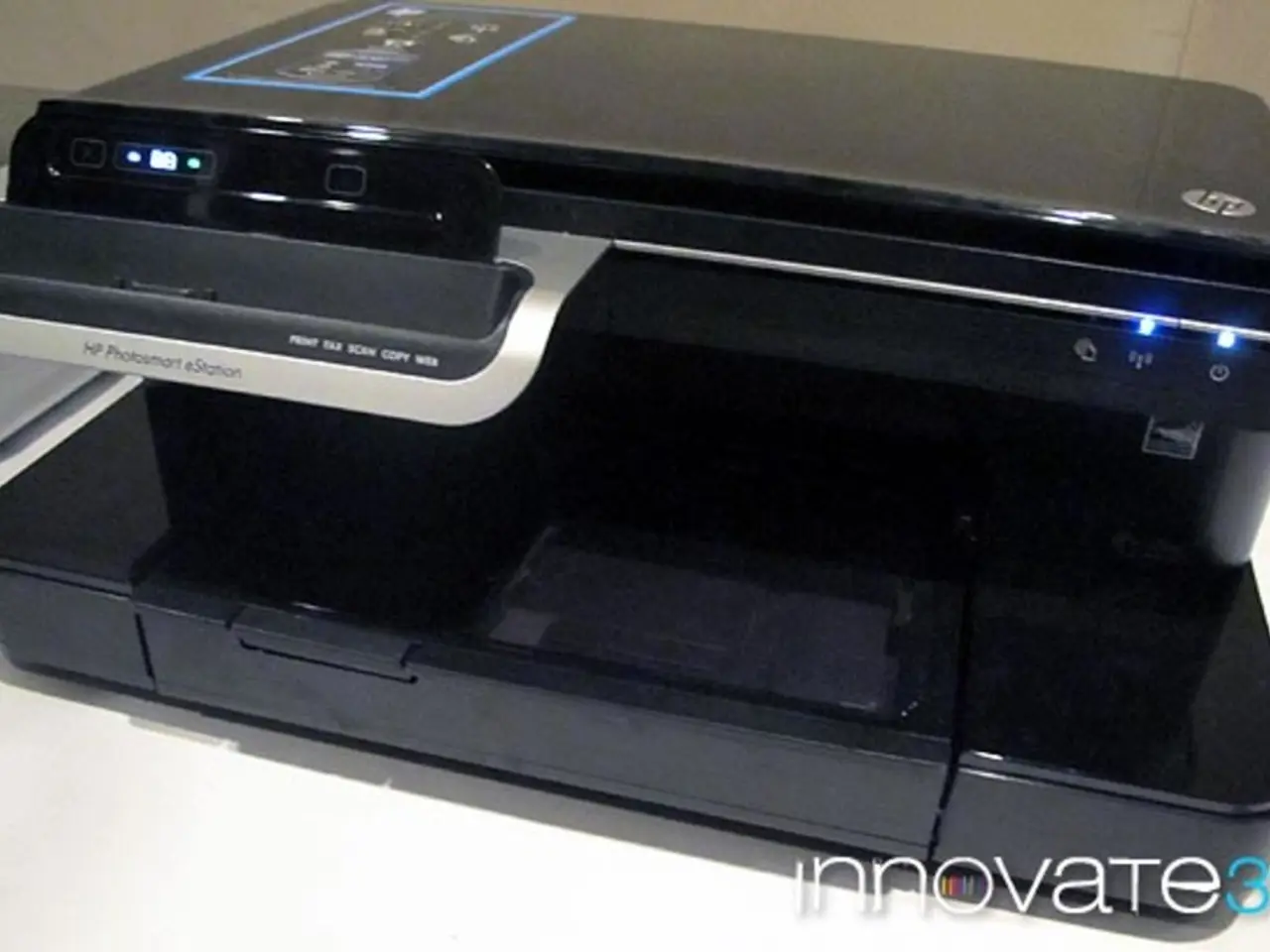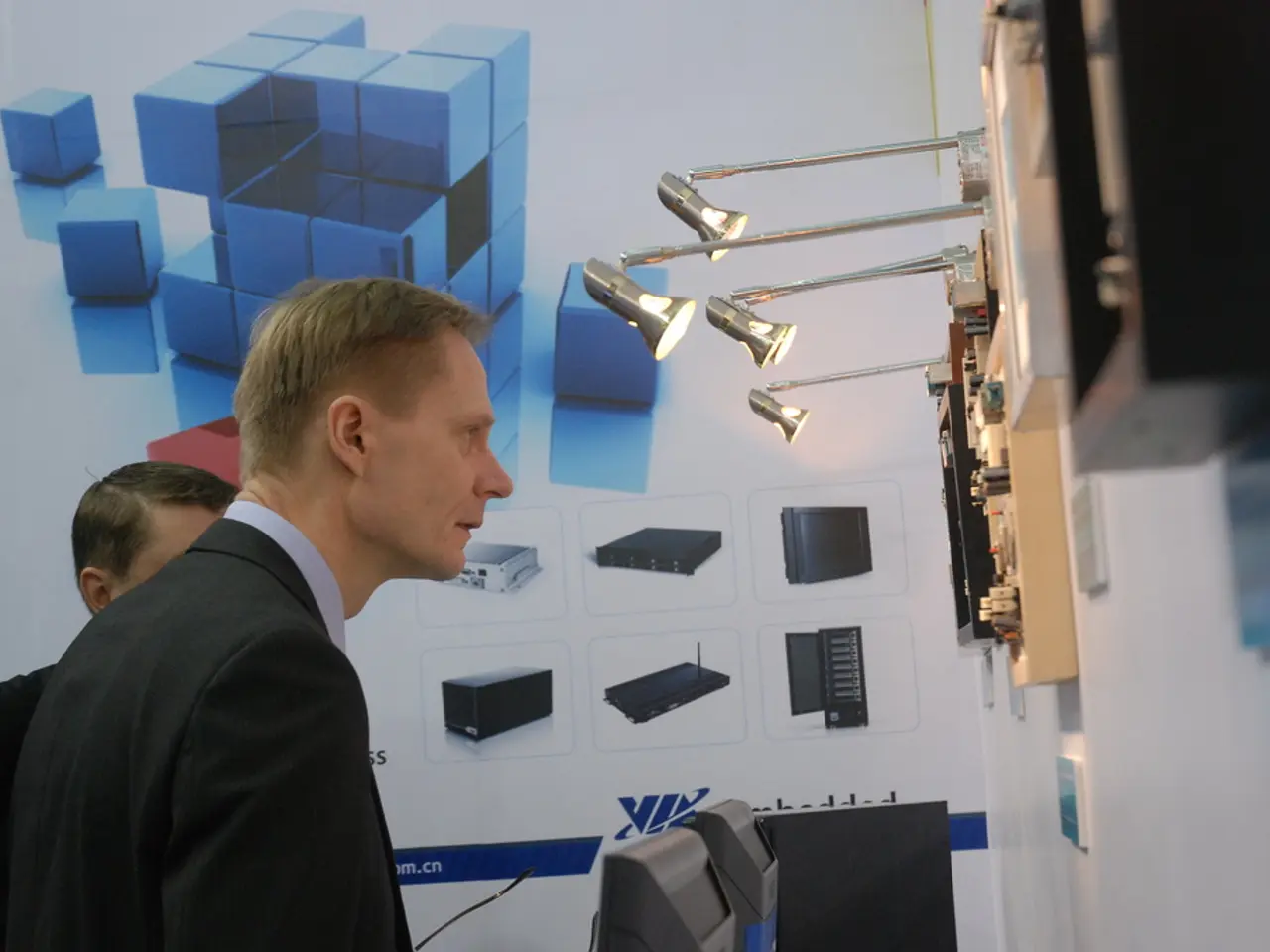Decline in German battery production and trade sales; lobby calls for immediate intervention
In an effort to revitalise and strengthen the battery market, the German government is implementing a series of policy actions. These measures aim to support the recovery and future growth of the industry, with a focus on specialised, high-performance battery segments.
Industry experts from ZVEI predict a gradual recovery to begin in 2025, with a return to growth projected by 2026. This optimistic outlook is based on the government and industry's efforts to stabilise supply chains and strategically reposition Germany in niche markets where its engineering expertise can provide an advantage.
The government's broader energy transition policies, including substantial investments in renewable energy capacity and grid infrastructure, are indirectly supporting the battery market's revitalisation. For instance, with battery storage capacity set to reach 1.7 GW in 2025 and plans to reduce grid fees by 50% by 2030, this could unlock capital for battery storage firms and innovation in grid balancing technologies.
Notably, the focus has shifted from hydrogen to battery technologies in the 2026-2032 budget, signalling a policy preference to prioritise battery storage and advanced battery technologies for decarbonization and energy security in the near term.
The expected impacts of these policies include a gradual recovery in domestic battery production starting in 2025, increased competitiveness in high-performance and premium battery segments, and enhanced integration of battery storage within the renewable energy expansion.
Gunther Kellermann, managing director of the battery section at ZVEI, anticipates a more positive picture in 2026. Meanwhile, Christian Rosenkranz, chairman of ZVEI's battery section, has called for decisive political action to prevent further loss of Germany as a battery manufacturing location. He demands more competitive energy costs, faster approval procedures, cuts to red tape, and reliable and targeted funding, especially in research.
Despite the challenges faced in recent years, the megatrends of electrification remain intact. ZVEI expects ongoing expansion of electric vehicles, leading to a likely improvement in lithium-ion batteries sales in the future. Additionally, ZVEI executives highlight defence technology as an increasingly dynamic area of battery demand due to geopolitical developments.
In 2024, the national battery market volume in Germany decreased by 16%, totalling 20.5 billion euros. Imports of batteries fell by 15% in 2024 to 21.2 billion euros. Production values of all batteries in Germany fell by 5% in 2024 to 7.3 billion euros, with exports dropping by 3% to 7.9 billion euros. These declines were mainly due to weaker demand for lithium-ion batteries used in e-mobility.
The new coalition government in Germany is trying to boost economic growth and overcome recent setbacks with a billion euro tax cut and spending packages. These efforts, coupled with the strategic policy actions outlined above, aim to foster a sustainable recovery and innovation-driven growth in the battery market over the coming years.
Technology plays a significant role in the government's efforts to revitalize the battery market, as investments in advanced battery technologies and grid balancing technologies are expected to unlock capital for battery storage firms. Furthermore, the shift in focus from hydrogen to battery technologies in the 2026-2032 budget indicates a policy preference for prioritizing technology development in battery storage for decarbonization and energy security.




